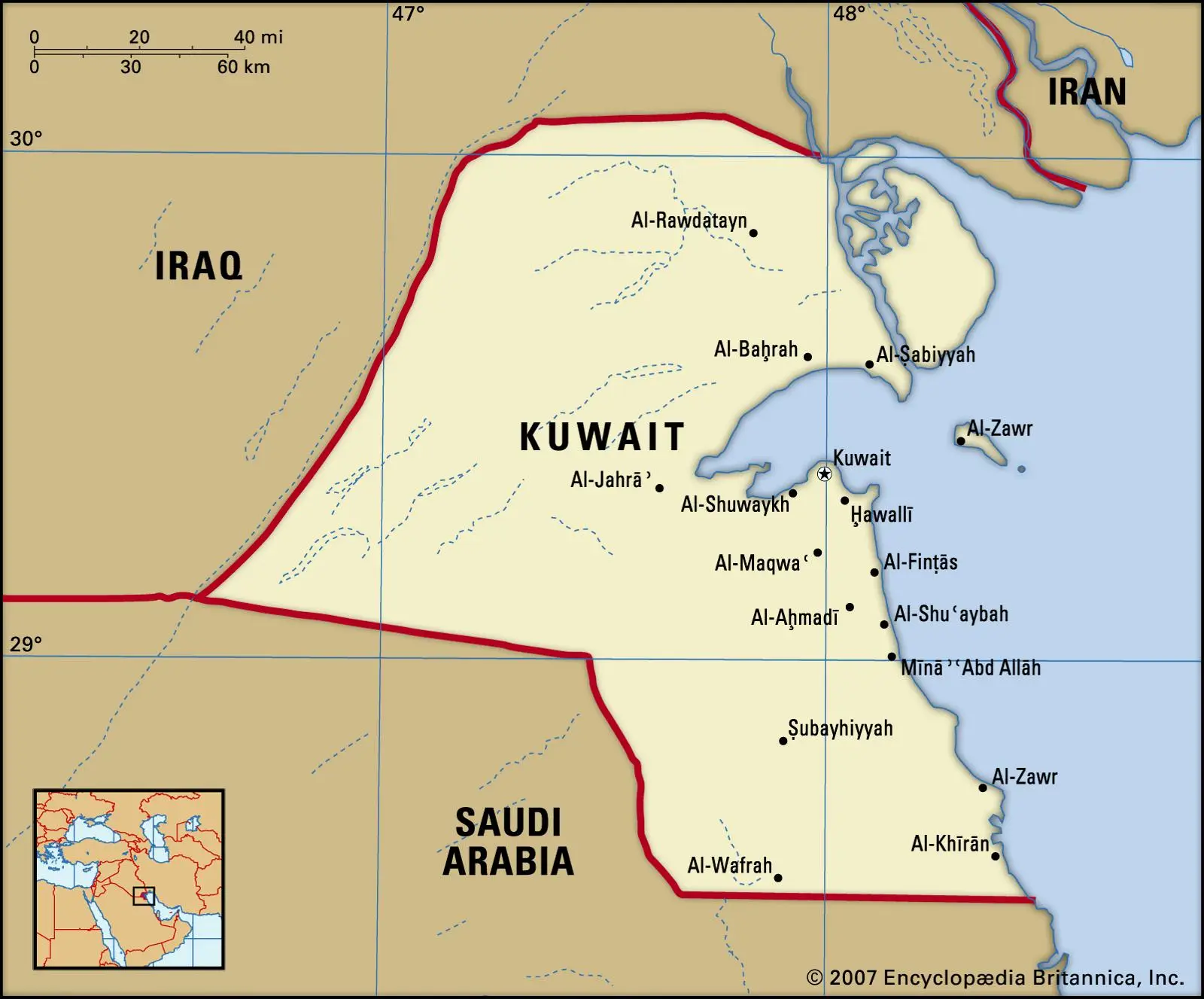Nestled along the cerulean waters of the Arabian Gulf, Kuwait is a vibrant tapestry of tradition and modernity, where ancient customs intertwine seamlessly with contemporary trends. From bustling souks filled with exotic spices and shimmering fabrics to sleek skyscrapers and luxury shopping malls, Kuwait’s lifestyle offers a unique blend of old-world charm and cosmopolitan flair. This article explores the rich tapestry of Kuwait’s lifestyle, from its traditional cuisine and cultural practices to its thriving arts scene and bustling social life. Welcome to a world where tradition meets innovation, and history merges with modernity in the fascinating land of Kuwait.
Exploring Kuwaiti Cuisine: A Fusion of Flavors and Traditions

Kuwaiti cuisine is a delightful blend of flavors and traditions that reflect the rich history and cultural heritage of this beautiful country. From mouth-watering traditional dishes to modern fusion creations, Kuwaiti cuisine offers a unique gastronomic experience that will leave you craving for more.
One of the key elements of Kuwaiti cuisine is the use of aromatic spices such as cardamom, saffron, and cinnamon, which add depth and complexity to the dishes. These spices are often used in combination with fresh herbs like parsley, mint, and cilantro to create a harmonious balance of flavors.
When it comes to traditional Kuwaiti dishes, you can’t miss out on the famous machboos, a flavorful rice dish topped with tender meat (usually chicken, lamb, or fish) and garnished with nuts and dried fruit. Another must-try is the traditional Kuwaiti breakfast staple, balaleet, which is a sweet and savory vermicelli noodle dish topped with a fried egg.
For those looking for a modern twist on Kuwaiti cuisine, there are plenty of options to choose from. Restaurants in Kuwait City offer innovative dishes that fuse traditional Kuwaiti flavors with international influences, creating a unique culinary experience that is sure to delight your taste buds.
Fashion Trends in Kuwait: Blending Modernity with Tradition

Kuwaiti fashion trends are a beautiful blend of modernity and tradition, reflecting the rich cultural heritage of the country. With a focus on modesty and elegance, Kuwaiti fashionistas are known for their unique sense of style that incorporates traditional elements with a modern twist.
Key Features of Kuwaiti Fashion Trends:
- Incorporation of traditional Kuwaiti garments such as the thobe and abaya
- Emphasis on high-quality fabrics and intricate embroidery
- Bold colors and vibrant prints inspired by Kuwaiti art and architecture
- Accessories like statement jewelry, designer handbags, and embellished footwear
One of the most popular fashion trends in Kuwait is the fusion of Western and Middle Eastern styles, creating a unique and sophisticated look that is both trendy and culturally authentic. Kuwaiti designers are at the forefront of this fashion movement, showcasing their creativity and talent on both local and international runways.
Top Kuwaiti Fashion Designers:
| Designer | Signature Style |
|---|---|
| Abed Mahfouz | Luxurious evening gowns with intricate beadwork |
| Yousef Al Jasmi | Dazzling couture dresses embellished with crystals |
| Amna Al Salem | Chic and modern abayas with a twist |
Whether it’s a casual day out or a glamorous evening event, Kuwaiti fashion trends offer something for everyone. From modest yet stylish everyday wear to luxurious couture creations, Kuwaiti designers continue to inspire and innovate, showcasing the best of modernity and tradition in every outfit.
Family Values and Traditions: The Heart of Kuwaiti Society

Kuwaiti society is deeply rooted in family values and traditions, which form the very heart of their culture. Families in Kuwait are known for their strong bonds and close relationships, with family members often coming together to support one another in times of need. These values are passed down from generation to generation, shaping the way Kuwaitis interact with one another and the world around them.
One of the key aspects of Kuwaiti family values is the emphasis on respect for elders. In Kuwaiti culture, elders are highly regarded and their wisdom and experience are valued by younger family members. This respect is reflected in the way that younger generations interact with their elders, with gestures such as kissing the hand of an elder as a sign of respect.
Another important tradition in Kuwaiti society is the practice of gathering for meals as a family. Food plays a central role in Kuwaiti culture, and sharing a meal with loved ones is seen as a way to strengthen familial bonds. These gatherings often involve traditional Kuwaiti dishes, such as machboos (a rice dish with meat) and gabout (a sweet dessert).
Despite the modernization and changes that Kuwait has undergone in recent years, these family values and traditions remain at the core of Kuwaiti society. They serve as a reminder of the importance of family and community in the lives of Kuwaitis, and continue to shape the way that they interact with one another on a daily basis.
Leisure Activities in Kuwait: A Mix of Tradition and Innovation

Kuwait offers a unique blend of traditional and innovative leisure activities that cater to a variety of interests. From exploring historic sites to enjoying modern entertainment venues, visitors and locals alike can find something enjoyable to do in this vibrant country.
One of the most popular traditional activities in Kuwait is camel racing, a sport that dates back centuries. Visitors can watch these majestic creatures race across the desert at top speeds, showcasing the country’s rich heritage. For those looking for a more modern form of entertainment, Kuwait also offers a plethora of shopping malls, where they can shop for luxury brands or enjoy a movie at a state-of-the-art cinema.
For outdoor enthusiasts, Kuwait boasts beautiful beaches where visitors can relax, swim, or enjoy water sports such as jet skiing and parasailing. The country’s desert landscapes also offer opportunities for activities like dune bashing and camping under the stars, providing a unique way to experience the natural beauty of Kuwait.
Food lovers will delight in Kuwait’s culinary scene, which offers a mix of traditional Arabian dishes and international cuisine. Visitors can sample local delicacies such as machboos (spiced rice with meat) and harees (a wheat dish) at traditional restaurants or indulge in gourmet dining at upscale eateries.
Health and Wellness in Kuwait: Balancing Traditional Remedies with Modern Medicine

In Kuwait, the lifestyle revolves around striking a balance between traditional remedies and modern medicine when it comes to health and wellness. The people of Kuwait resort to a combination of age-old healing practices and cutting-edge medical treatments to maintain their well-being.
Traditional remedies such as herbal treatments and natural therapies have been passed down through generations in Kuwait. These remedies often involve the use of locally sourced ingredients like saffron, cardamom, and turmeric, which are believed to possess healing properties. Kuwaitis trust in these remedies for their effectiveness in treating common ailments.
On the other hand, modern medicine plays a significant role in the healthcare system of Kuwait. The country boasts state-of-the-art hospitals and clinics equipped with the latest medical technology. Kuwaitis have access to a wide range of healthcare services, including specialized treatments and surgeries, ensuring that they receive the best care possible.
By embracing both traditional remedies and modern medicine, the people of Kuwait are able to benefit from a holistic approach to health and wellness. This unique blend allows them to address their healthcare needs comprehensively, taking advantage of the best of both worlds.
Q&A
Q: What is the traditional attire worn by Kuwaitis?
A: The traditional attire worn by Kuwaitis is the dishdasha for men and the abaya for women.
Q: What are some popular recreational activities in Kuwait?
A: Some popular recreational activities in Kuwait include dune bashing, camel riding, and visiting the many shopping malls and markets.
Q: How important is family in Kuwaiti culture?
A: Family is highly valued in Kuwaiti culture, with extended families often living together and gathering for meals and celebrations.
Q: What is the typical cuisine in Kuwait?
A: The typical cuisine in Kuwait is a mix of traditional Arabic dishes such as grilled meats and rice, as well as modern international cuisine.
Q: How do Kuwaitis celebrate special occasions?
A: Kuwaitis celebrate special occasions with gatherings of family and friends, feasting on traditional foods, and exchanging gifts.
Q: What is the role of religion in Kuwaiti society?
A: Religion plays a significant role in Kuwaiti society, with Islam being the predominant religion and influencing many aspects of daily life.
Q: How do Kuwaitis spend their weekends?
A: Kuwaitis often spend their weekends socializing with friends and family, shopping, dining out, or enjoying outdoor activities such as picnics and beach outings.
Q: What are some traditional customs and etiquette in Kuwait?
A: Some traditional customs and etiquette in Kuwait include greeting with a handshake, showing respect to elders, and removing shoes before entering someone’s home.
To Wrap It Up
In conclusion, Kuwait offers a unique and vibrant lifestyle that combines traditions with modernity, creating a rich tapestry of culture and diversity. Whether you are exploring the bustling markets of Souq Al-Mubarakiya or indulging in the luxurious shopping malls, Kuwait has something to offer for everyone. From delicious cuisine to stunning architecture, this small but mighty country is sure to leave a lasting impression on anyone who visits. So why not pack your bags and experience the magic of Kuwait for yourself? Until next time, stay curious and keep exploring!



